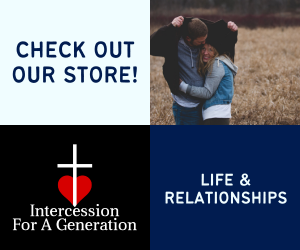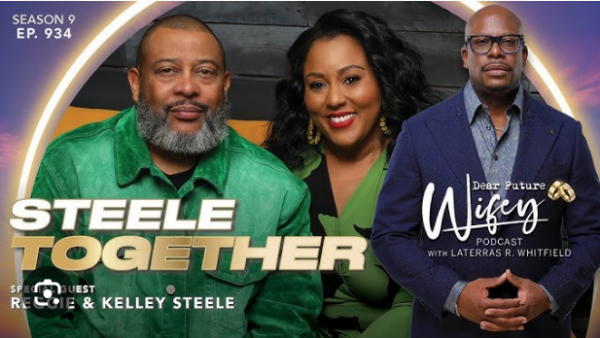When I heard the news that Charlie Kirk had been shot, all I could think of was to get an update as to whether he was okay or not. After hearing he’d died, I was very angry. I felt as though he’d been shot for sharing the gospel. I kept telling God I never saw an American killed for their faith in Christ.
It later turned to grief. I had to actually accept that the brother in the Lord, whom I used to see on Instagram Reels representing the kingdom of God, was gone. I did not focus very much on his views on Black people while he was alive, as I’d only started following him about 1 month and ½ before his passing.
I’d seen maybe a couple of Reels I disagreed with relating to Black issues, but he was not Black. So, my expectations weren’t high of him to have a position on us I fully agreed with. Today, about 16 days after his passing, I am reading about the passing of yet another complicated man, King Saul.
The news was brought to King David through an enemy, an Amalekite. King David and his men’s first reaction was to rip their clothing at the hearing of King Saul & Johnathan’s passing. When we look into the tradition of ripping one’s clothing in Israel, it signified extreme emotional stress and grief.
It’s Possible to be in Christ and be Sorely Wrong
King David and his men were able to grieve a complicated man, who had set out to kill David. The reason is that he still revered him as family in the kingdom of God. This is heavy because it allows us to see that someone can be both a brother or father in the Lord and yet sorely wrong.
You see, Saul had an insecurity about himself. It had nothing to do with David, but he set out to destroy King David again and again. David, fearing God and respecting Saul as a father in a sense, had the opportunity to destroy Saul. But he did not. Instead, he chose to trust in God to take care of him.
African-Americans Learned to Depend on God
This is much in line with the culture of African-Americans in this country. While God used others and various instances to help us gain our freedom, we ultimately made it as a people in this nation through our trust in the Lord. I will never forget about Booker T. Washington, who emphasized how our elders at the end of slavery, where there had been laws that prohibited us from reading, only wanted to read the Bible for themselves.
They weren’t willing to depend on others who did not have their best interest to educate them on what God says about them. We should take a lesson from their stories and do the same.
Sojourner Truth, who allowed God to lead her in a story she shared about how to keep one of her children from being sold as a slave to another state.
She further continued to follow God even to the point of making an impromptu trip to D.C. to talk with Abraham Lincoln, persuading him, along with others, to continue to seek to abolish slavery.
One of those others was Frederick Douglass, another gentleman who relied on God. The list goes on. This is one point I agreed with Charlie Kirk on. He’d shared our history as Afro-Americans in this nation has heavily relied on the values of Christianity and family. Two strong values we share with conservatives.
He spoke about how the Civil Rights Act is currently being misused to promote values that go against what it was initially meant for. Values that go against both Afro-American culture and conversative culture.
Yes, this is true. However, some of the ways that this was communicated were divisive and unclear. When we are divisive and unclear, we can distract from our initial intent.
Points of Disagreement with Charlie Kirk
Other points I disagreed with Charlie Kirk on were the fight against reparations, using the argument, “Why should I pay for what I did not do?” That isn’t even a relevant argument. No one is asking him to pay for slavery.
Reparations should be paid by the government and the many companies that are still wealthy today, who gained their wealth directly through money that was funneled through the slave-trade, such as Chase, Wells Fargo, Bank of America, Citizens Bank, the Domino Sugar company, and more. The wealth was stolen from our community through free labor.
The Bible is clear that when someone steals from another, they should make good on what they’ve stolen. It’s a Biblical law of justice. Further, when the children of Israel left Egypt, God would not allow them to leave empty-handed. It was a principle of justice that God was demonstrating.
More Discourse on Reparations Opposing the Argument of Charlie Kirk
Therefore, a discussion of reparations has nothing to do with Blacks being lazy or unwilling to pull themselves up by their bootstraps. Another conservative lie rooted in a harmful racial stereotype that assumes Blacks are lazy.
Remember, we are the ones who worked for free while our wealth was stolen. Many of our ancestors also returned to their masters, working for free after slavery as sharecroppers. It only made sense for vulnerable people taken from their original land. Work was all many of us knew. It’s still what many of us know to this day.
Never Allow Your Culture to Detract from the Gospel
It appeared as though Charlie’s culture had gotten in the way of his commitment to the gospel, resulting in creating confusion and division. Candace Owens said that he’d grown up listening to Rush Limbaugh, and he wanted a podcast like his. He finally had one. So, while I see Charlie as my brother in the Lord, it is still somewhat complicated because of the White Supremacist ideas that he promoted.
It is hard to separate him from them fully, as he promoted these ideas again and again in his arguments against DEI and, in some cases, immigration. One thing he did say that I respect is that people should be willing to tell him when he is wrong instead of putting a label on him that may not be true.
I believe some of our White brothers and sisters can act out of stereotypes toward the Black community due to ignorance. They’ve got to learn what is true and not of various people groups through experience and growth. It doesn’t always mean someone is racist.
I believe he knew that he was not correct in all of his views regarding our community. He even humbled himself in a debate with a sharp Black woman who had advised Bernie Sanders. He concluded the interview by saying something like Republicans would have different ideas if they spoke to more people like Briana Joy Gray.
Early on in the video, he tried to assert his argument by throwing negative stats at her to humble her, but he became quiet and began to listen, realizing there is a lot that he doesn’t know.
At the end of the day, I can disagree with him on many of his ideas concerning our culture and see him as my brother. I can mourn and experience the feeling of loss like King David did with Saul. The truth is, Charlie Kirk’s wrong ideas were his to work through. Just like King Saul’s insecurity was his to work through, not David’s.
Our responsibility as believers in the family of God is to love others like we love ourselves. To fear and revere God in how we treat people, even when it’s hard. I’m sure it wasn’t easy for David to protect Saul’s life when he could have very easily gotten rid of the man who had sought to kill him. Instead, he trusted God.
He did not take Saul’s journey into his own hands. As a fellow believer in the God that Charlie worshipped, I do not take the responsibility of Charlie’s wrong views into my hands to punish him or to condemn him for it. I trust that somehow God will use his life and death for His glory and to unify our nation through dialogue. Dialogue that would cause those of us who are still left here to learn and grow with one another in unity.
Our Responsibility as Afro-Americans Who Face Racial Stereotypes like that Shared by Charlie Kirk
Our responsibility as African American believers isn’t to resolve everyone else’s wrong ideas about us. People are going to people. They are going to have unfair views about race, sex, and religion until Jesus comes back.
That is each individual person’s responsibility to work through. Our responsibility is to guard our hearts and own who God says we are. This means walking confidently based on what God says about us. God says we are his children if we trust and believe in Christ. He says we’ve been accepted in the beloved. If we are already accepted, we do not need to look to man to accept us.
God says he is Jehovah Jireh, meaning he will take care of us. Therefore, we do not have to get caught up in the Democratic or Republican wars on what the government can do for us. We should learn our history about how many of our elders sang songs and prayers relying on God to protect them physically from Domestic terrorism when they fought for us to have equal rights. We should recount the stories of Fannie Lou Hamer, Ida B. Wells, Sojourner Truth, Frederick Douglass, and more.
These are beautiful stories that tell the story of our beauty as a people, strength, discipline, and faith. When we know who we are, we are not terribly moved by those who do not. Instead, we become examples of those who contradict the stereotypes of us within the minds of others.
Knowing who we are for ourselves and keeping the fear of the Lord as a priority in our hearts above what’s going on in culture will assist us in avoiding a bitter heart of offense. Bitterness and offense keep people stuck.
It prohibits us from allowing ourselves to be conduits for the love of Christ to flow through. That’s the true reason God allows us to be here. He wants us to be living epistles read of men to reflect the gospel and love of Christ to others.
Take a watch at the talk below by John Bevere about how offense can affect us:
Watch until 22:36











